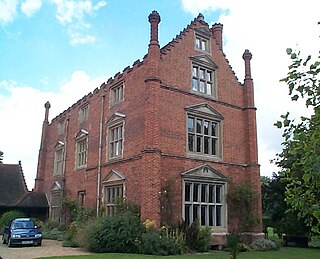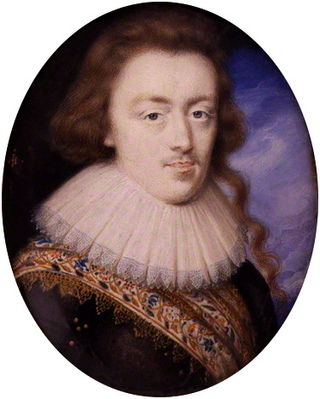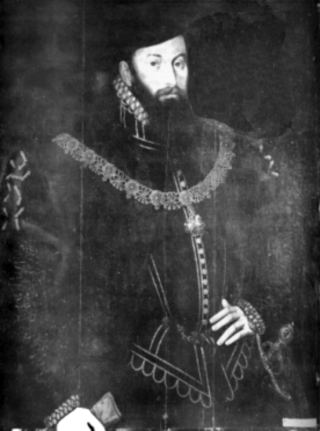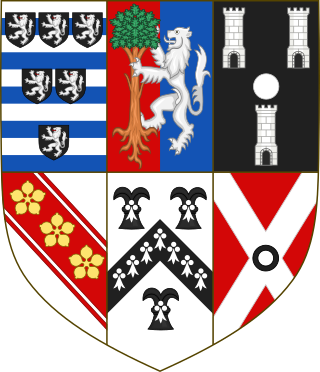Related Research Articles
Christopher Hatton, 1st Baron Hatton KB PC FRS was a distant relation of the Elizabethan politician, Sir Christopher Hatton and a prominent Royalist during the reign of King Charles I of England.

Sir John Suckling was an English politician who sat in the House of Commons at various times between 1601 and 1627.

Dudley North, 4th Baron North, KB of Kirtling Tower, Cambridgeshire was an English politician, who sat in the House of Commons at various times between 1628 and 1660.

Thomas West, 2nd and 11th Baron De La Warr of Wherwell Abbey, Hampshire, was a member of Elizabeth I's Privy Council.
Sir John Say was an English courtier, MP and Speaker of the House of Commons.

William Cecil, 2nd Earl of Exeter,, known as the third Lord Burghley from 1605 to 1623, was an English nobleman, politician, and peer.
Sir Thomas Heneage PC was an English politician and courtier at the court of Elizabeth I.

Sir Francis Gawdy was an English judge. He was a Justice of the King's Bench, and Chief Justice of the Common Pleas. His country seat and estates were in Norfolk.
Sir Miles Sandys, 1st Baronet was an English landowner and politician who sat in the House of Commons at various times between 1614 and 1629.
Sir Thomas Hatton, 1st Baronet was an English politician who sat in the House of Commons of England variously between 1621 and 1640.
Sir Roger Burgoyne, 2nd Baronet was an English politician who sat in the House of Commons at various times between 1641 and 1656.

Sir Christopher Hatton KB was an English politician who sat in the House of Commons between 1601 and 1614. He was also an active patron of the arts.
Robert Shute was an English lawyer and politician who sat in the House of Commons between 1620 and 1621.
Thomas Bedingfield was an English lawyer and politician who sat in the House of Commons in 1586.
Sir Robert Hatton was an English landowner and politician who sat in the House of Commons at various times between 1621 and 1642. He supported the Royalist cause in the English Civil War.
Sir Thomas Hatton, 2nd Baronet was an English politician who sat in the House of Commons from 1674 to 1679.
Thomas Walsingham was an English politician.
John North, of Cambridgeshire, was an English politician.
John Pocklington (1658–1731) was an English lawyer and Whig politician who sat in the English and British House of Commons between 1695 and 1713. He was appointed a Welsh circuit judge in 1707 and a judge of the Court of Exchequer (Ireland) in 1714, as a result of which he settled in Ireland. He suffered from chronic ill health, and was imprisoned on the orders of the Irish House of Lords in 1719, during a major Constitutional crisis. His descendants, who adopted the surname Domvile, were wealthy landowners in south County Dublin.
Henry Anderson was an English landowner and politician who was elected to represent Newcastle-upon-Tyne once as Sheriff, three times as Mayor, and four times as MP in the House of Commons between 1584 and 1593 and was also Sheriff of Northumberland.
References
- 1 2 3 "Shute, Robert (SHT542R)". A Cambridge Alumni Database. University of Cambridge.
- ↑ Weis, Frederick Lewis (1999). The Magna Charta Sureties, 1215: The Barons Named in the Magna Charta, 1215, and Some of their Descendants Who Settled in America During the Early Colonial Years, Fifth Edition. Baltimore: Genealogical Publishing Co., Inc. p. 167.